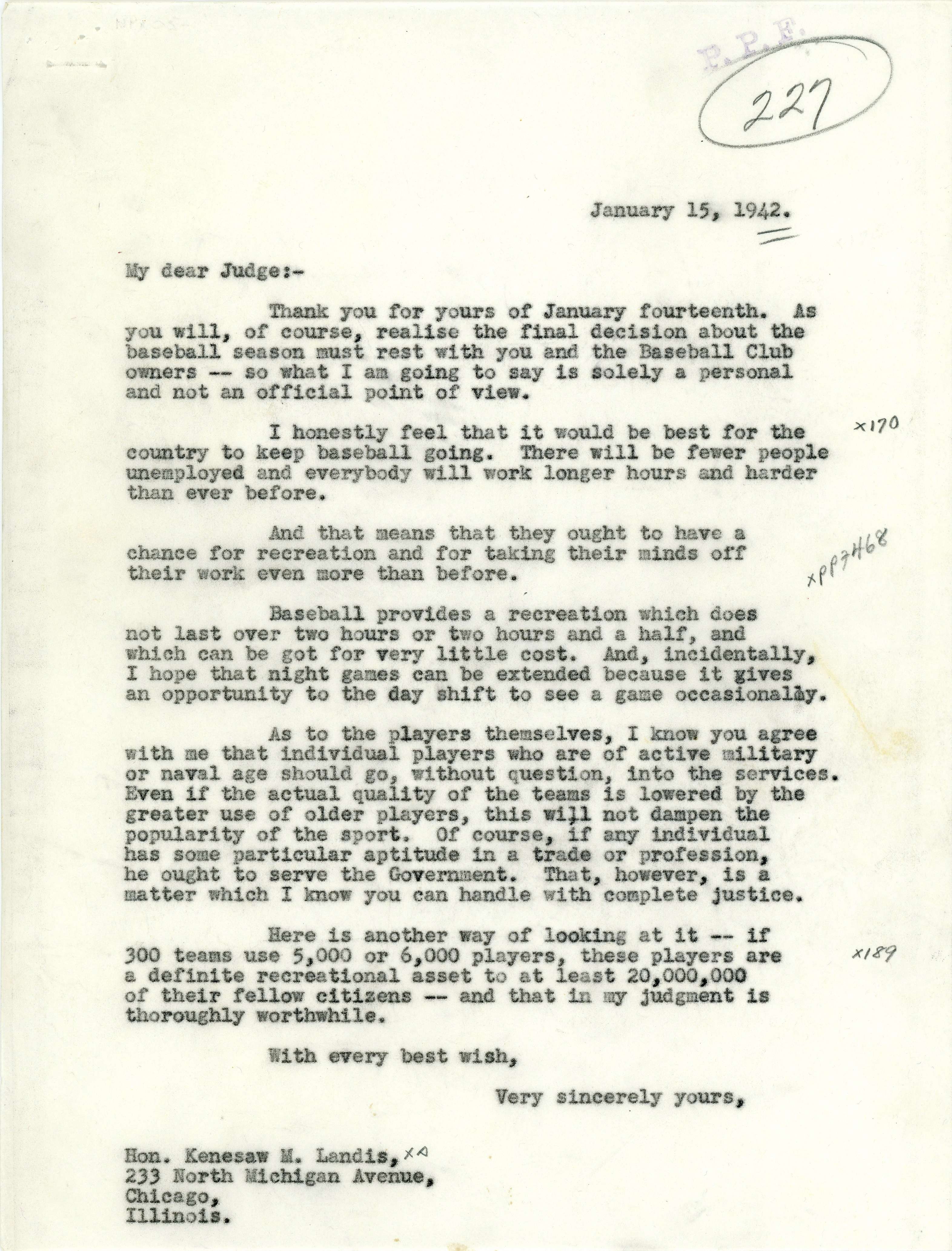Baseball: A Morale Booster During Wartime?
Focusing on Details: Compare and Contrast
All documents and text associated with this activity are printed below, followed by a worksheet for student responses.Introduction
You will learn about the role of baseball in helping to boost American morale during wartime.Examine the documents closely and answer the questions. Click on "View Entire Document" to see the documents in greater detail.
Name:
Class:
Class:
Worksheet
Baseball: A Morale Booster During Wartime?
Focusing on Details: Compare and Contrast
Examine the documents included in this activity and write your response in the space provided.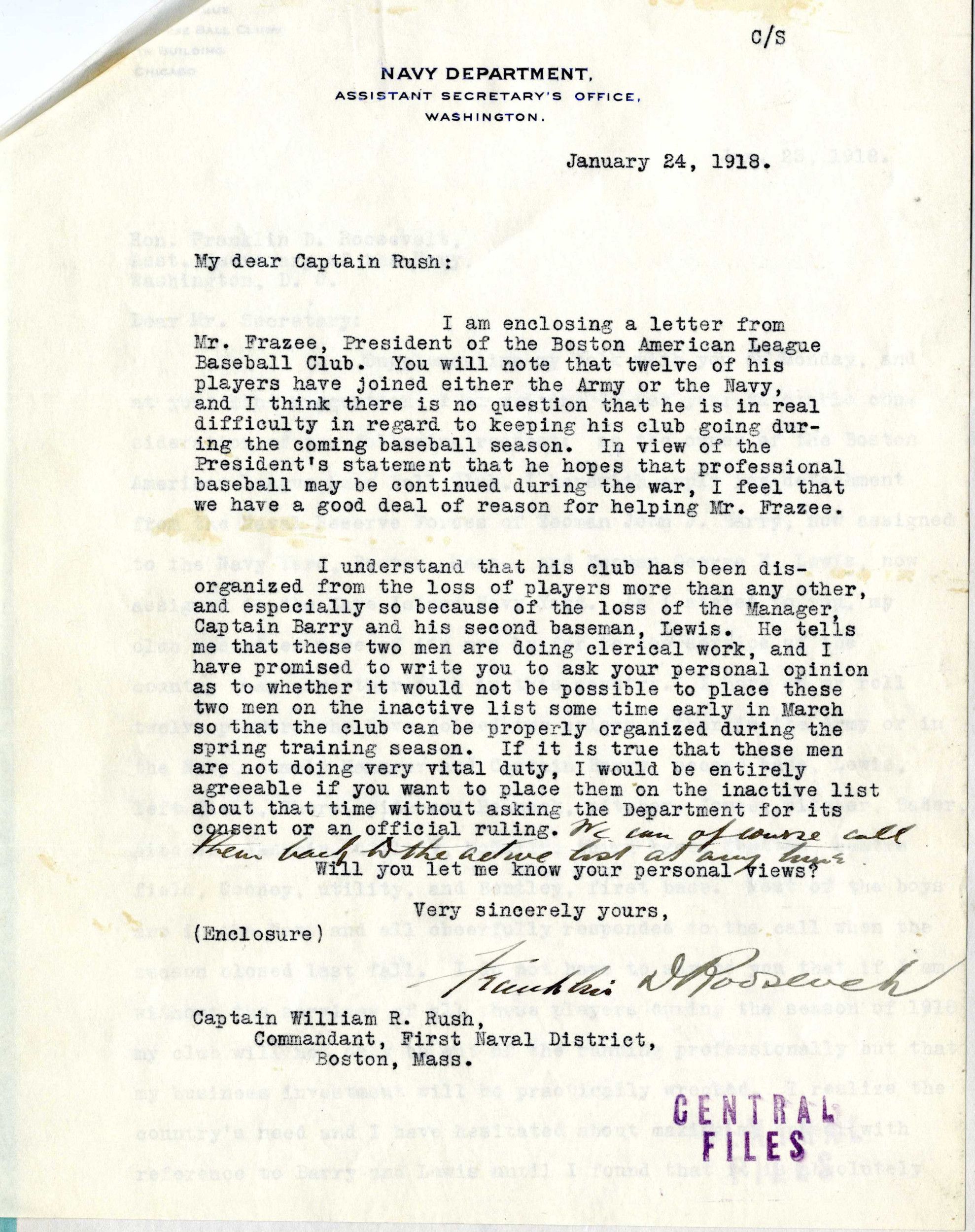
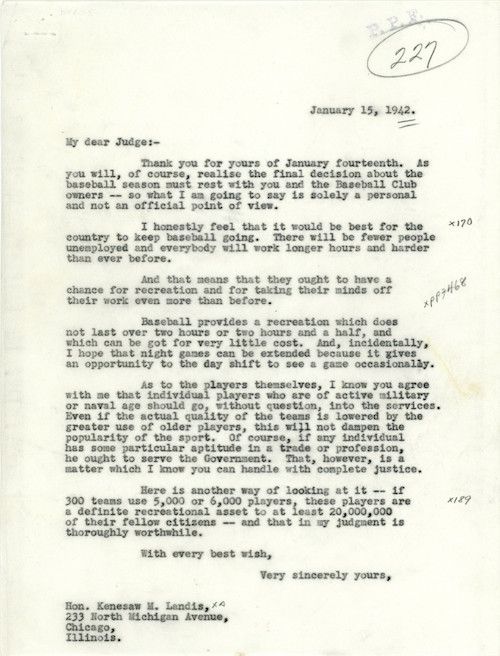
- What are the dates of these documents?
- Who are the documents written to?
- What event does each document describe?
- What is the author requesting in these documents?
- Do you believe the same person authored these documents? Why or why not?
- What is the tone of these documents?
Your Response
1
Activity Element
Page 10

2
Activity Element
Page 1

Conclusion
Baseball: A Morale Booster During Wartime?
Focusing on Details: Compare and Contrast
Conduct research to find other ways morale was boosted for military troops and Americans on the home front during both World Wars and to the present day. Then create a visual representation, such as a display or scrapbook, with the information you found to illustrate these different morale builders.Your Response
Document
Matters Related to Red Sox Players
12/1917 - 2/1918
These letters, memos, and endorsements pertain to Boston Red Sox baseball players serving in the Naval Reserve Force during World War I.
In the winter of 1917-1918, Red Sox owner Harry M. Frazee had petitioned both Commandant of the Boston Navy Yard, Captain William R. Rush, and Assistant Secretary of the Navy, Franklin D. Roosevelt, for the release of Yeoman John J. "Jack" Barry, the team's manager and second baseman, as well as Yeoman George E. "Duffy" Lewis, the team's left fielder, so that they might be available to play in the 1918 season. Barry and several other players were stationed at Boston Navy Yard, while Lewis was stationed at Mare Island Navy Yard in Vallejo, California.
In his letter to Assistant Secretary Roosevelt, Frazee stated that 12 of his players had enlisted in either the Army or Navy following the conclusion of the 1917 season, and expressed concerns about maintaining a competitive team and financially viable business investment in their absence. Frazee wrote, “Although I would like to have the services of several of the other players whom I have lost, I do not feel that in this hour of our country’s crisis I ought to ask it, and I am only too happy to know that the Boston club has been able to provide so many good men and stands in the front rank of all the base ball clubs in America as having contributed the largest number of men, twelve in all.”
The 1918 season was cut short due to the war. Despite most of the players declining to seek leave to play "league baseball," the Red Sox won the 1918 World Series, their third championship in four years.
In the winter of 1917-1918, Red Sox owner Harry M. Frazee had petitioned both Commandant of the Boston Navy Yard, Captain William R. Rush, and Assistant Secretary of the Navy, Franklin D. Roosevelt, for the release of Yeoman John J. "Jack" Barry, the team's manager and second baseman, as well as Yeoman George E. "Duffy" Lewis, the team's left fielder, so that they might be available to play in the 1918 season. Barry and several other players were stationed at Boston Navy Yard, while Lewis was stationed at Mare Island Navy Yard in Vallejo, California.
In his letter to Assistant Secretary Roosevelt, Frazee stated that 12 of his players had enlisted in either the Army or Navy following the conclusion of the 1917 season, and expressed concerns about maintaining a competitive team and financially viable business investment in their absence. Frazee wrote, “Although I would like to have the services of several of the other players whom I have lost, I do not feel that in this hour of our country’s crisis I ought to ask it, and I am only too happy to know that the Boston club has been able to provide so many good men and stands in the front rank of all the base ball clubs in America as having contributed the largest number of men, twelve in all.”
The 1918 season was cut short due to the war. Despite most of the players declining to seek leave to play "league baseball," the Red Sox won the 1918 World Series, their third championship in four years.
This primary source comes from the Records of Naval Districts and Shore Establishments.
National Archives Identifier: 5751792
Full Citation: Matters Related to Red Sox Players; 12/1917 - 2/1918; Personnel Officer General 19-41, Jan. - April 1918; General Correspondence, 1909 - 1969; Records of Naval Districts and Shore Establishments, ; National Archives at Boston, Waltham, MA. [Online Version, https://www.docsteach.org/documents/document/red-sox-boston-navy-yard, April 24, 2024]Matters Related to Red Sox Players
Page 1
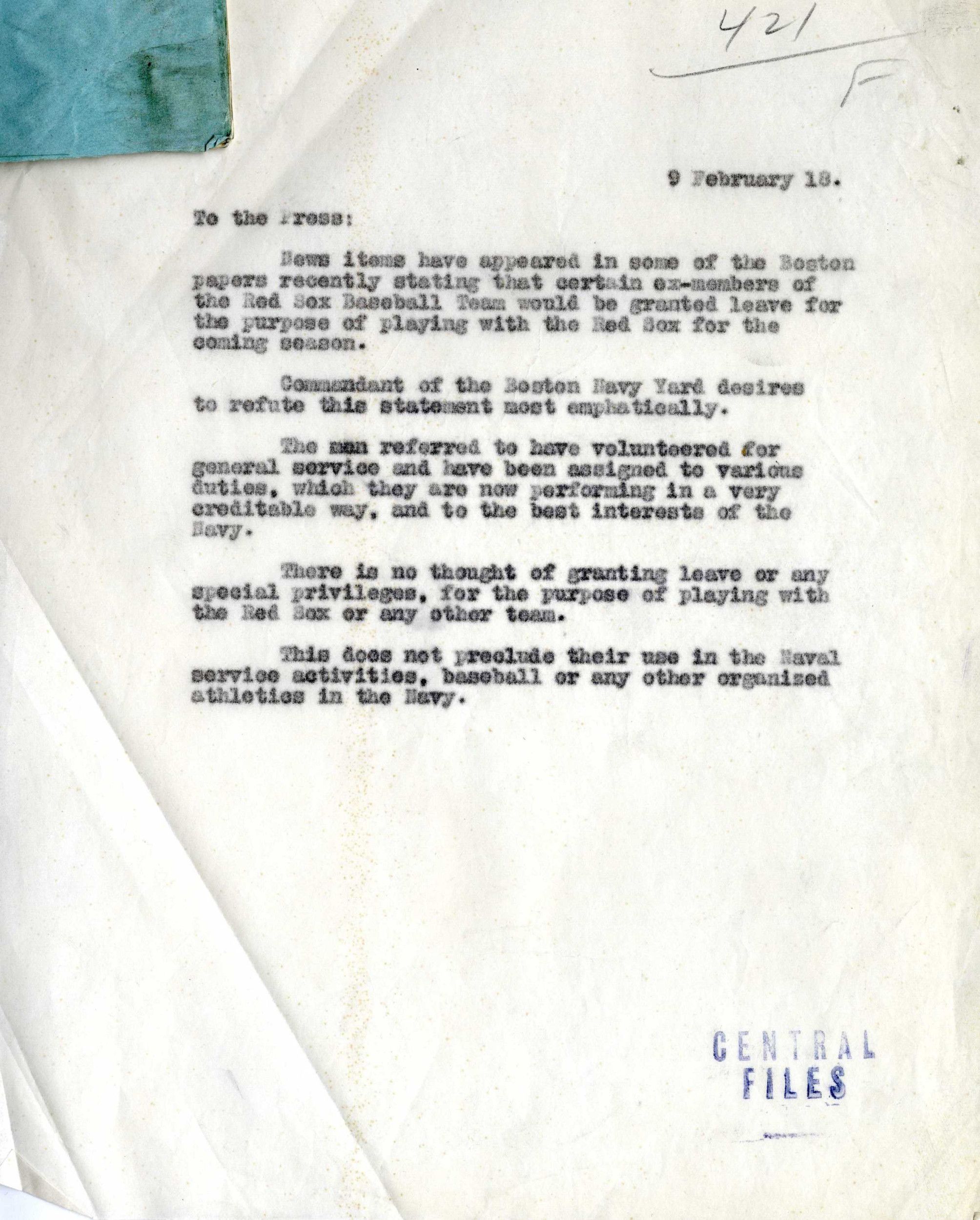
Matters Related to Red Sox Players
Page 2

Matters Related to Red Sox Players
Page 3
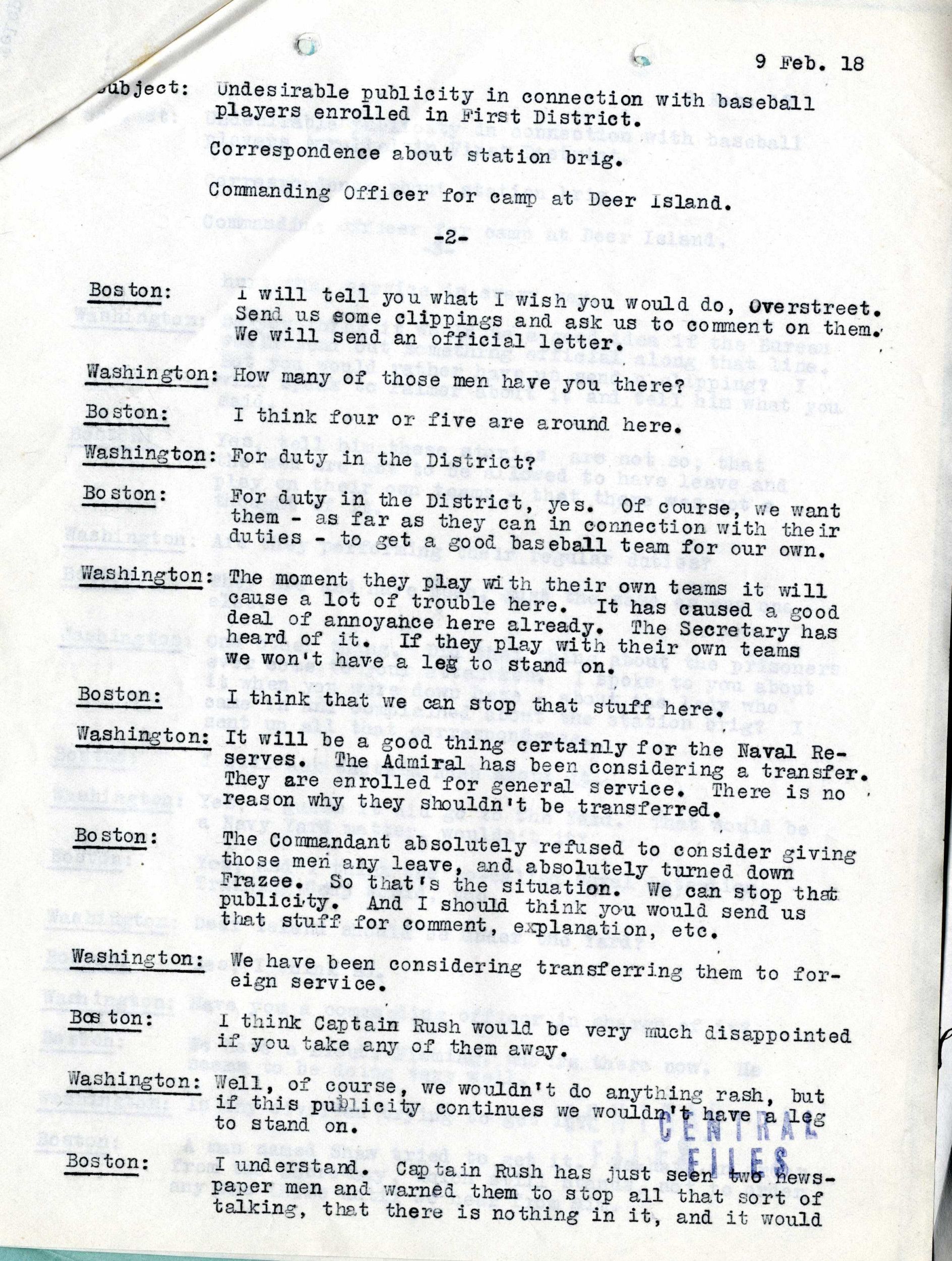
Matters Related to Red Sox Players
Page 4
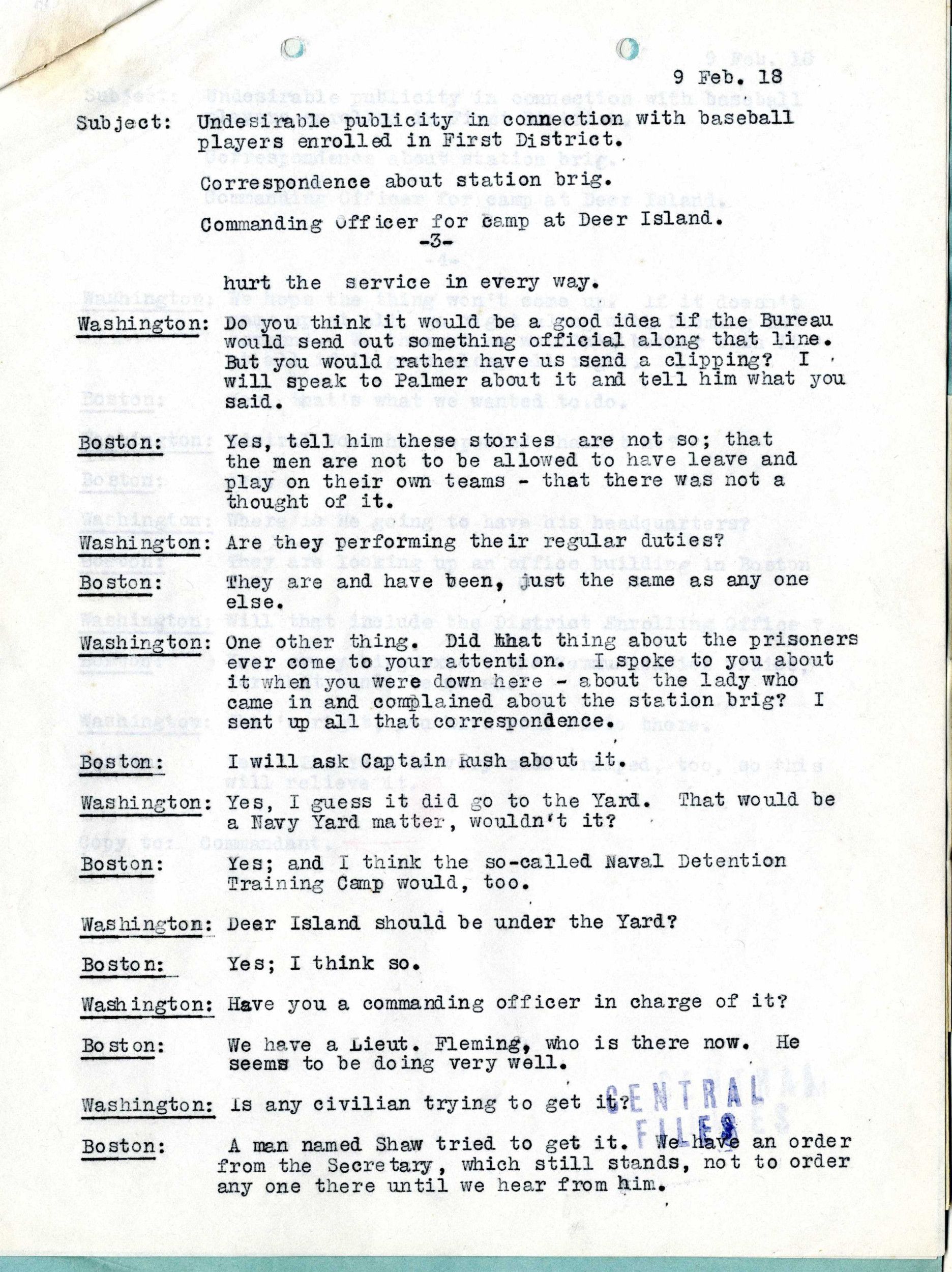
Matters Related to Red Sox Players
Page 5
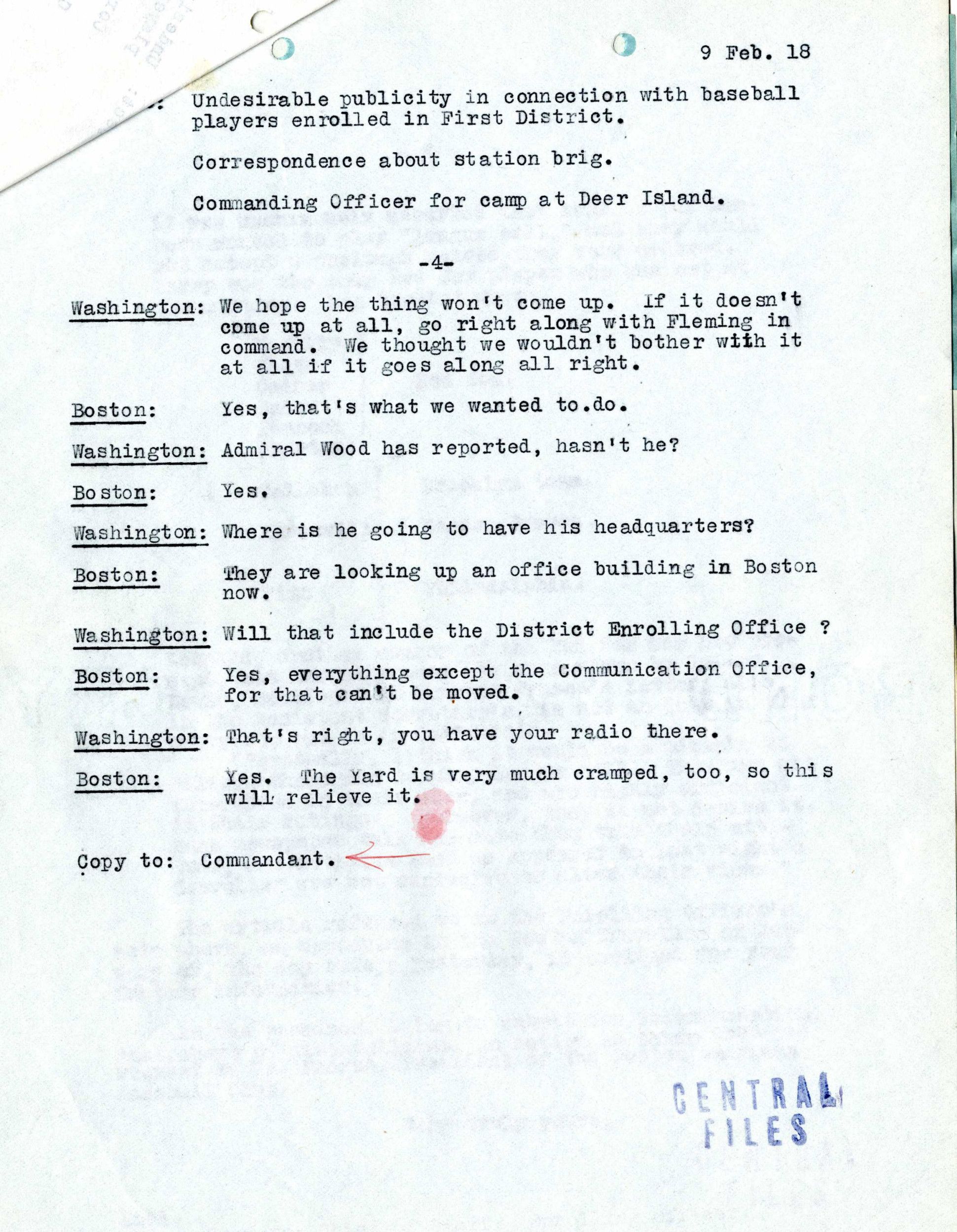
Matters Related to Red Sox Players
Page 6
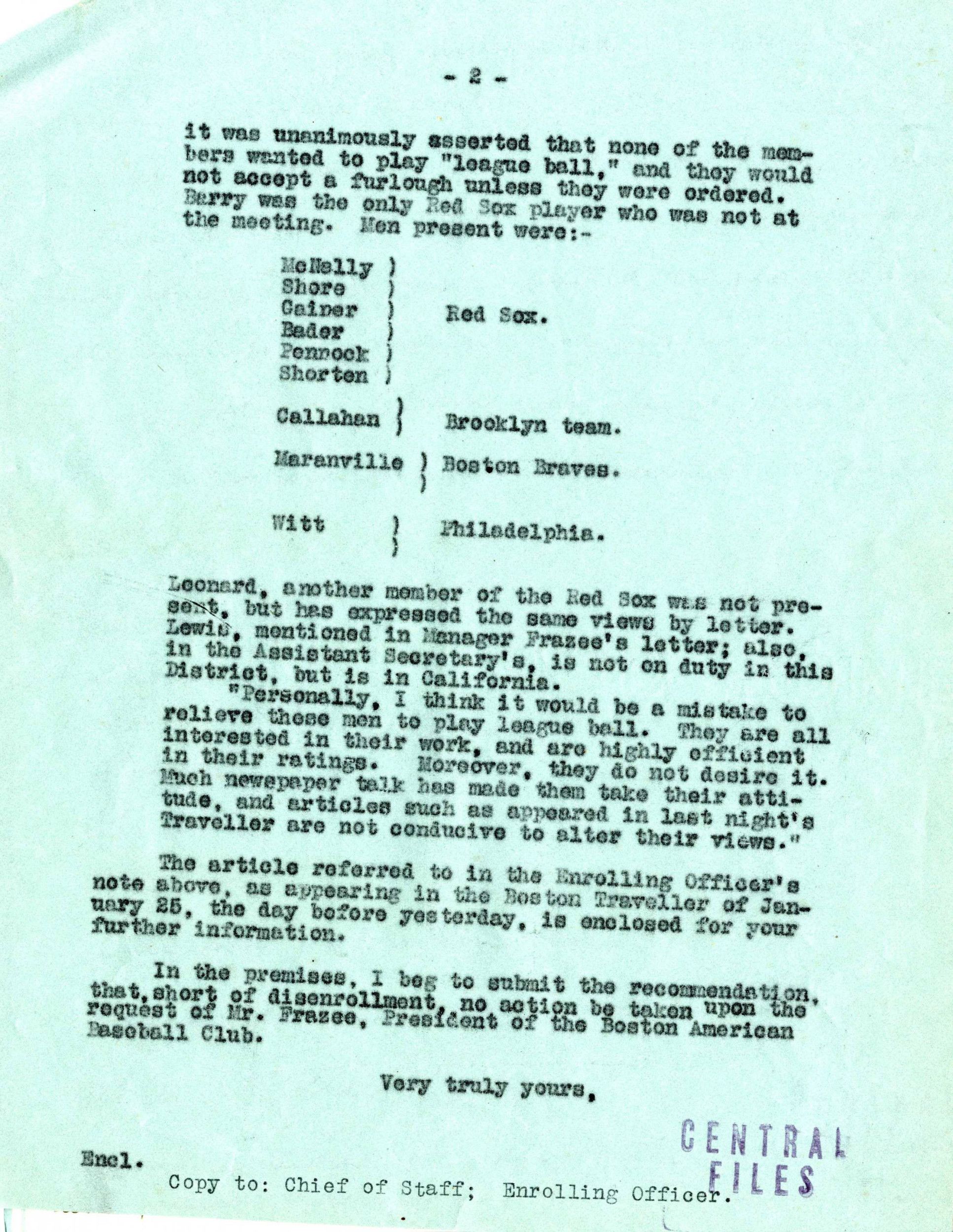
Matters Related to Red Sox Players
Page 7

Matters Related to Red Sox Players
Page 8

Matters Related to Red Sox Players
Page 9
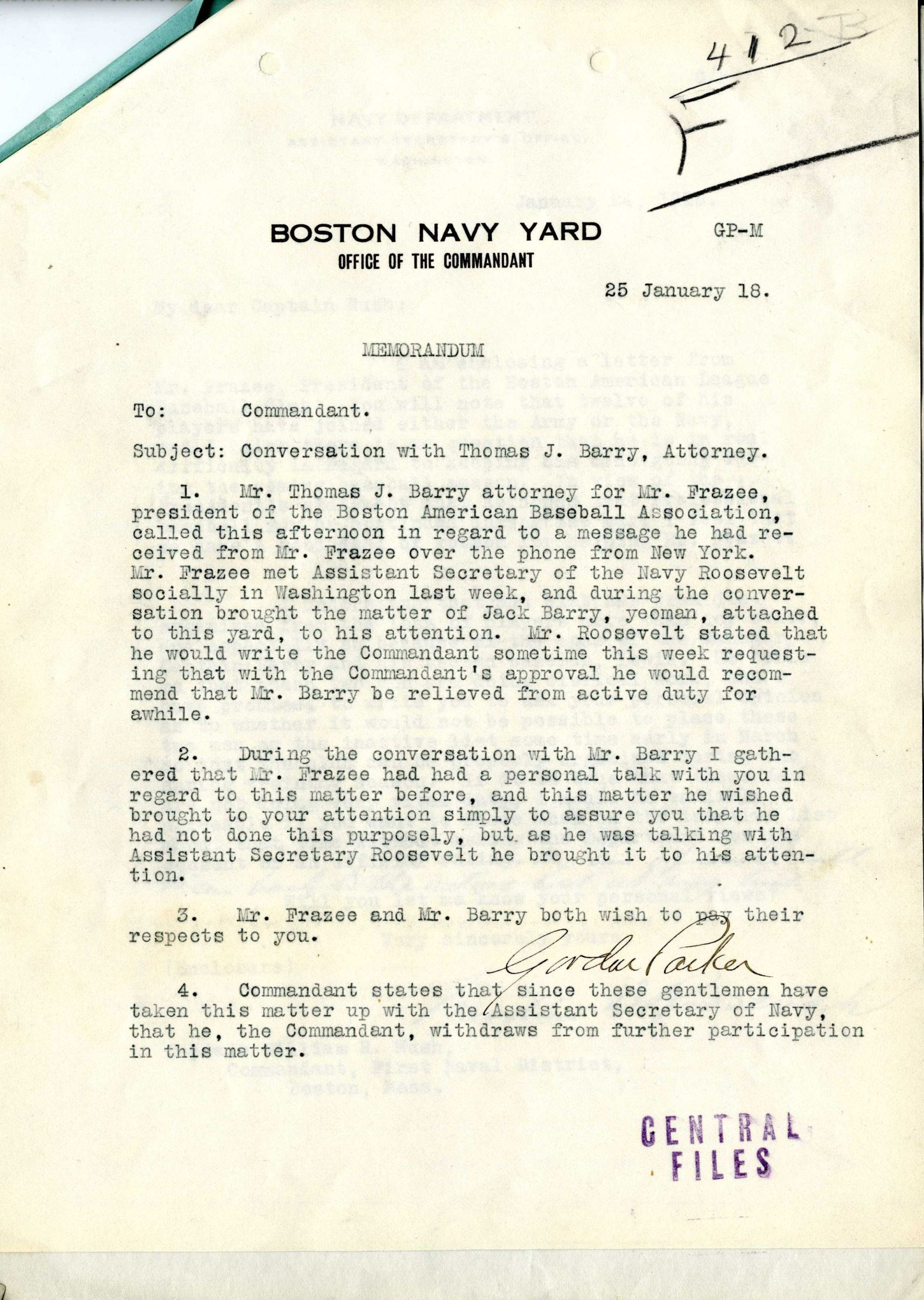
Matters Related to Red Sox Players
Page 10

Matters Related to Red Sox Players
Page 11

Matters Related to Red Sox Players
Page 12
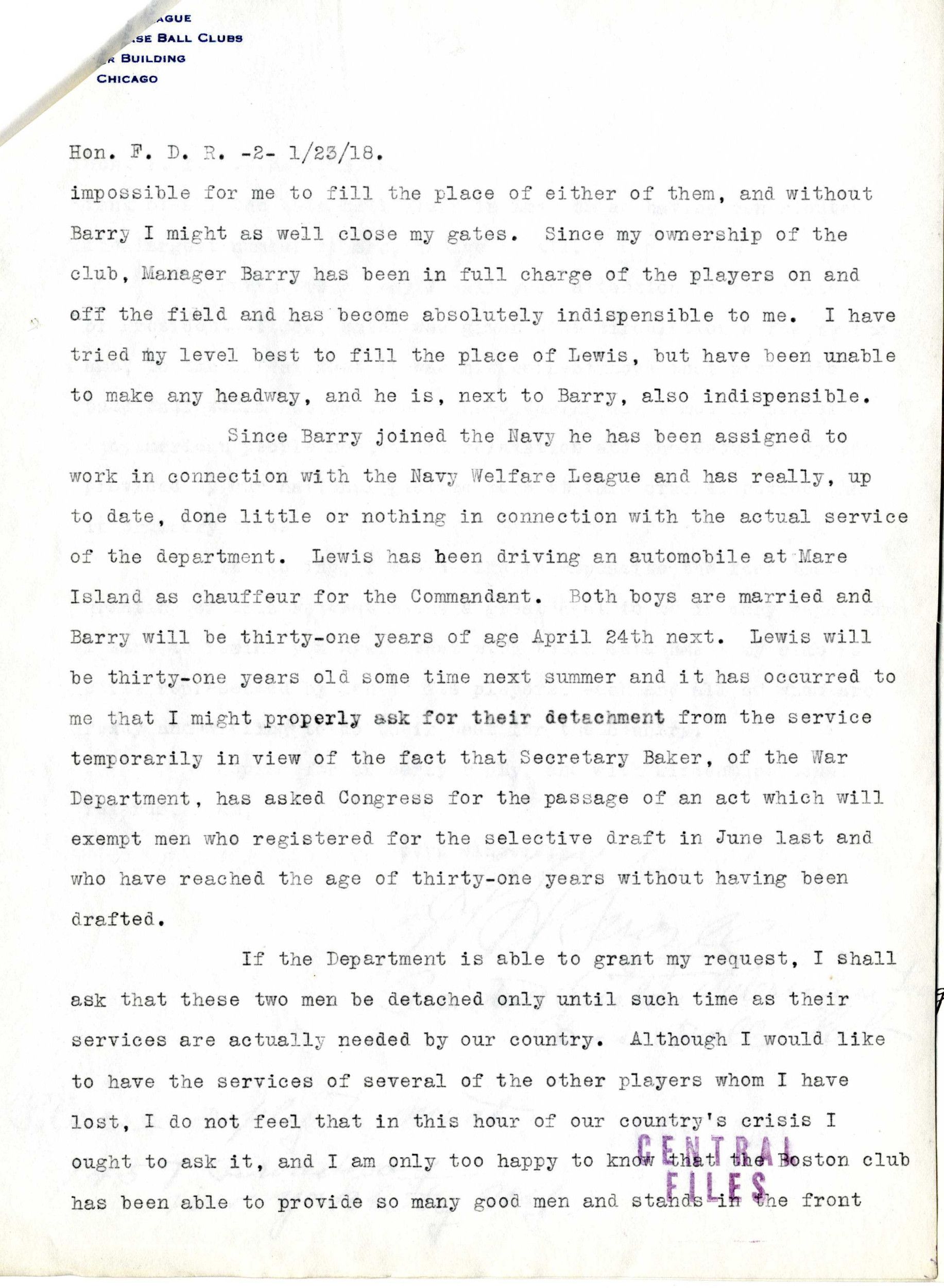
Matters Related to Red Sox Players
Page 13
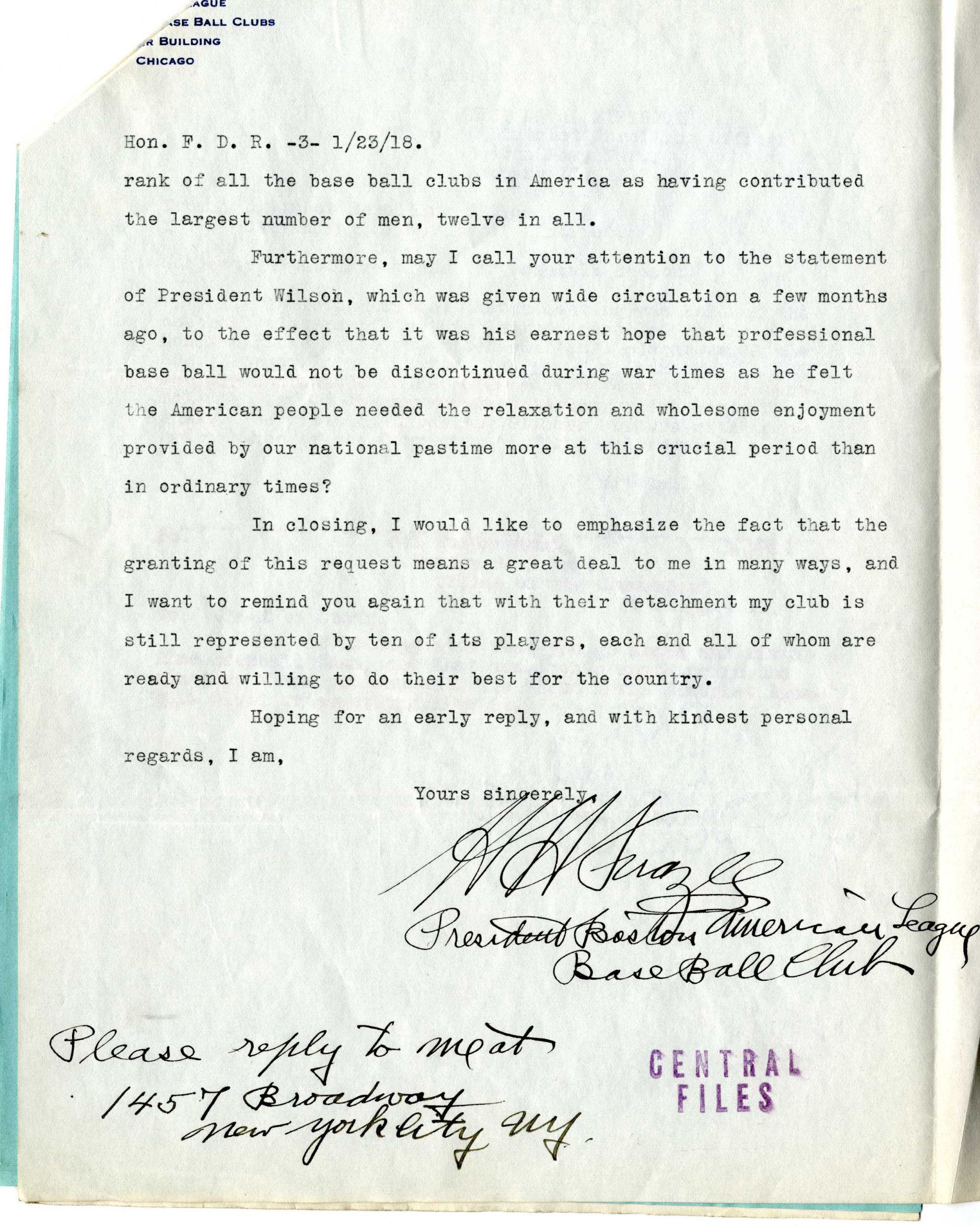
Matters Related to Red Sox Players
Page 14
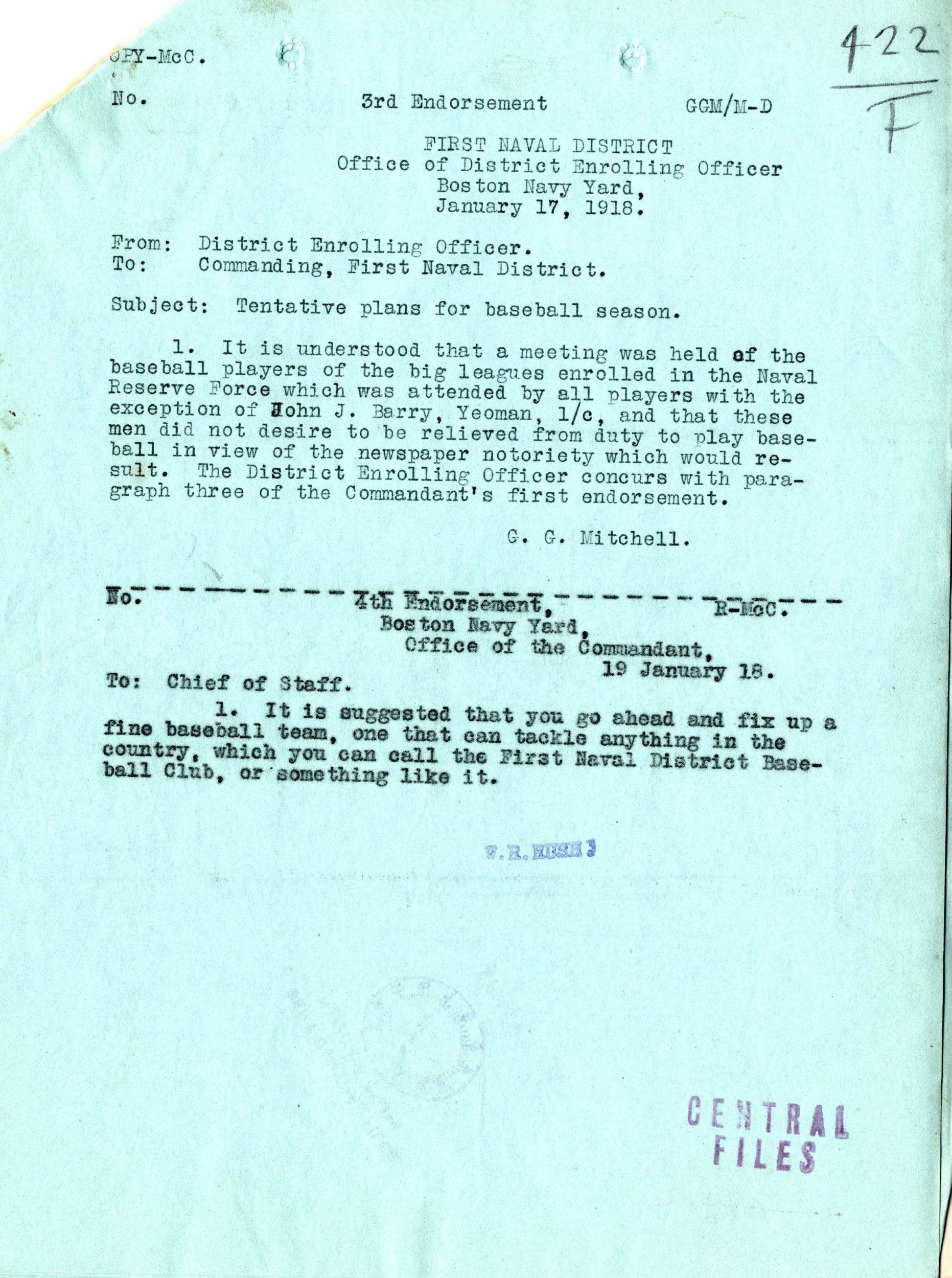
Matters Related to Red Sox Players
Page 15
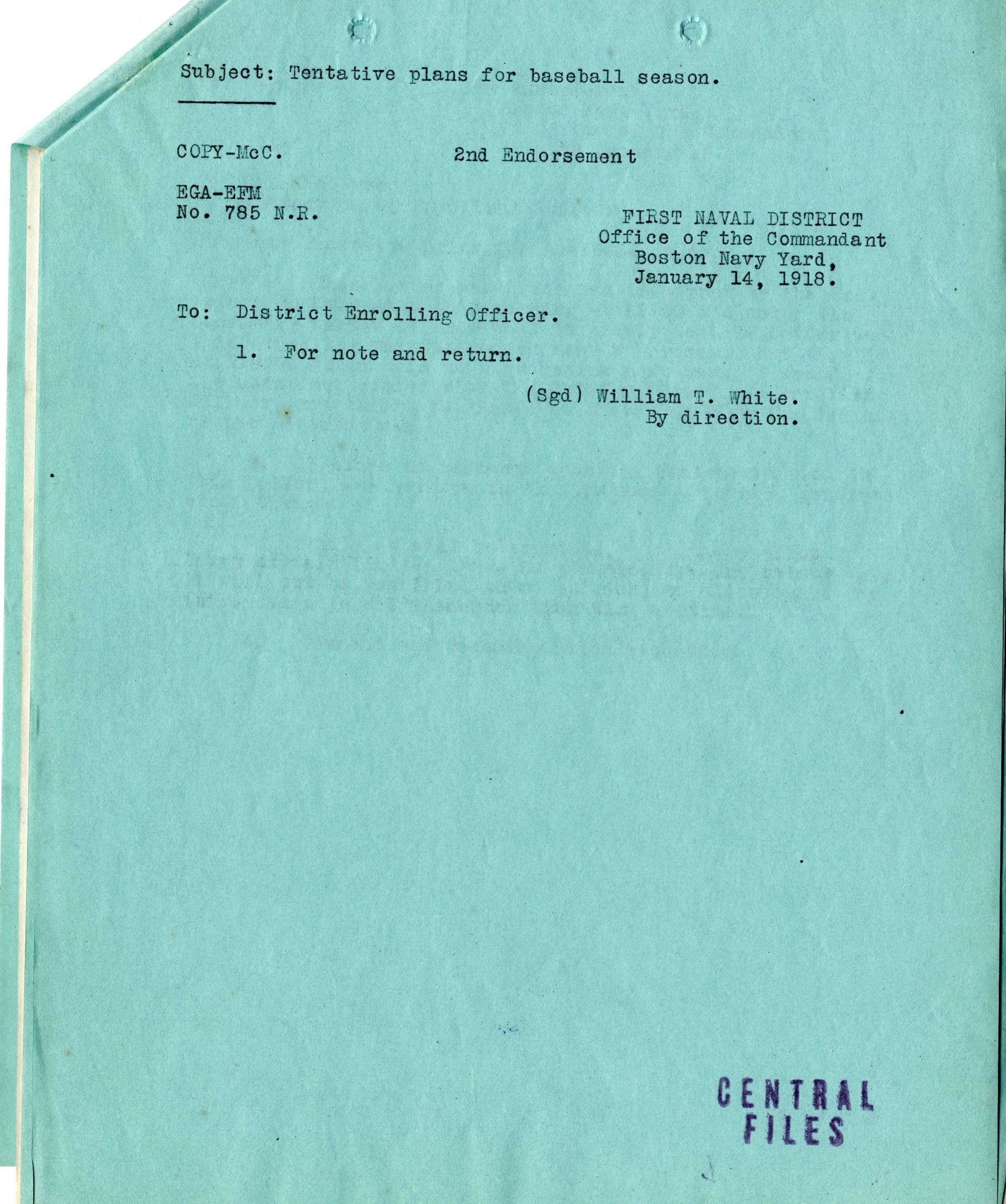
Matters Related to Red Sox Players
Page 16
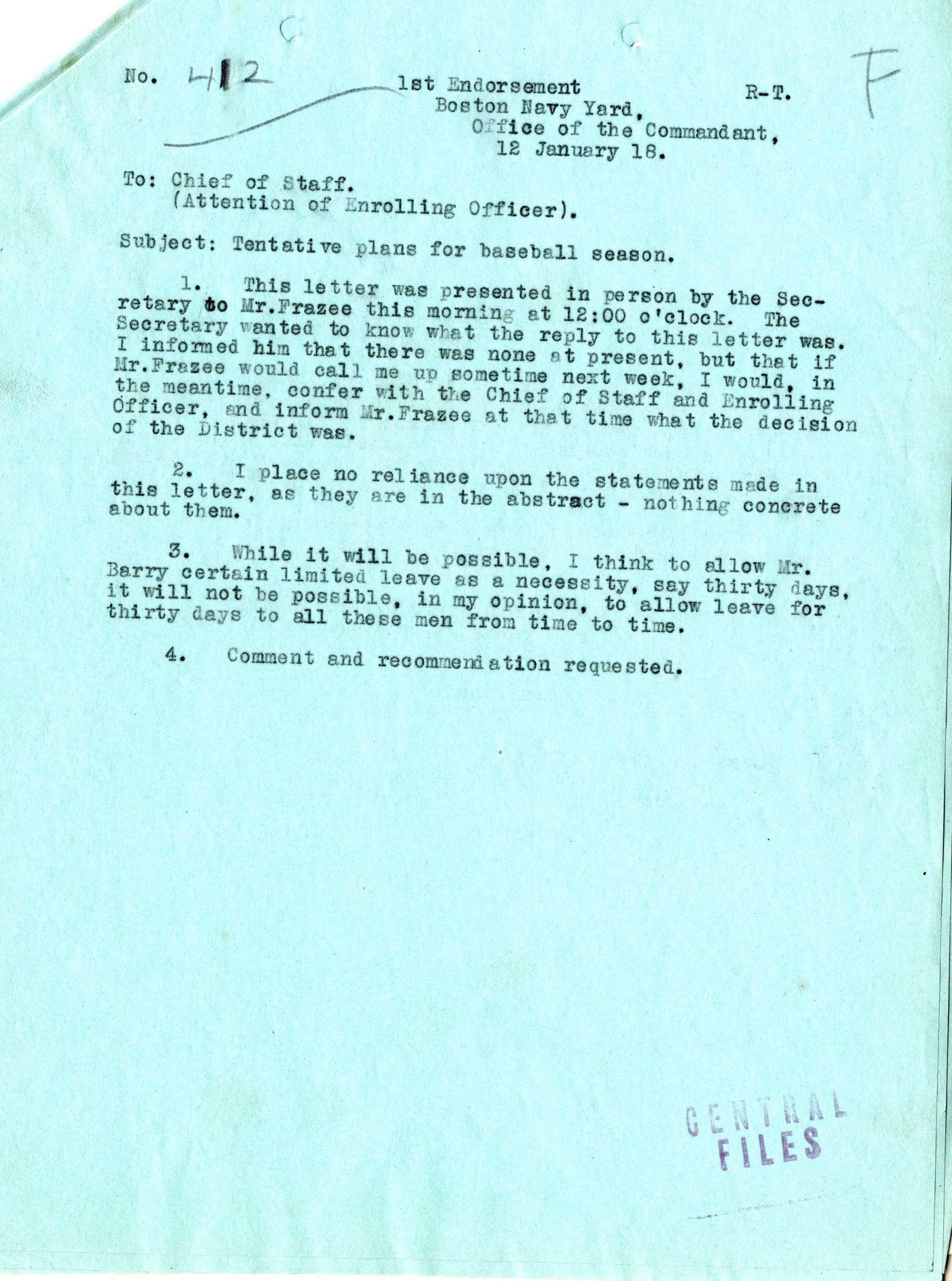
Matters Related to Red Sox Players
Page 17
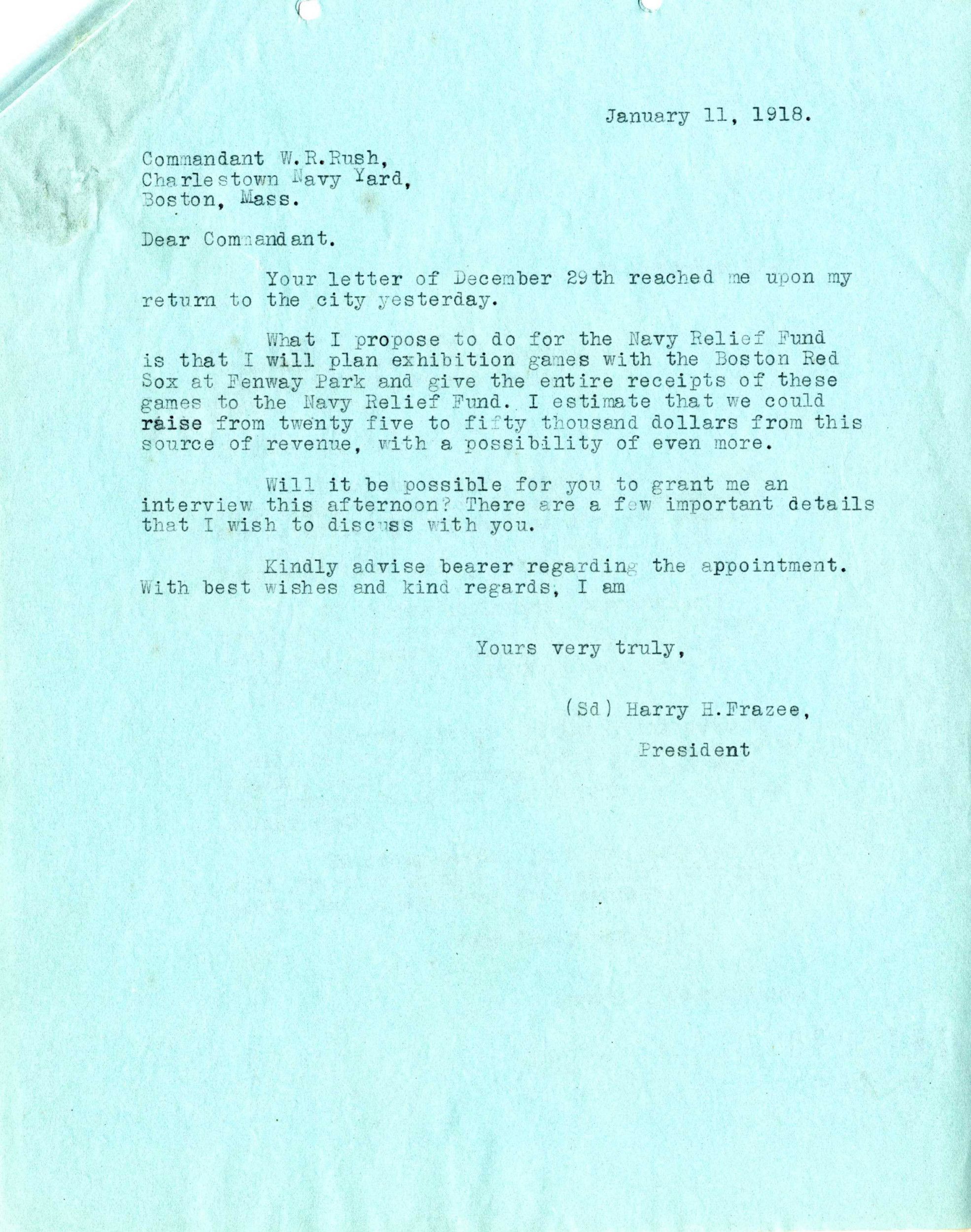
Matters Related to Red Sox Players
Page 18

Document
Letter from President Franklin D. Roosevelt to Kenesaw Landis Regarding Baseball
1/15/1942
Five weeks after the Japanese bombed Pearl Harbor and the United States entered World War II, Commissioner of Baseball Kenesaw Mountain Landis wrote President Franklin D. Roosevelt asking whether major league baseball should be played. Here, President Roosevelt responds affirmatively with personal hope in what is known as the “green light” letter. President Roosevelt suggested “that it would be best for the country to keep baseball going.”
This document is featured in "Baseball: The National Pastime in the National Archives," a free eBook from the National Archives.
This document is featured in "Baseball: The National Pastime in the National Archives," a free eBook from the National Archives.
Transcript
[Handwritten, circled] 227January 15, 1942
My dear Judge:-
Thank you for yours of January fourteenth. As you will, of course, realise the final decision about the baseball season must rest with you and the Baseball Club owners -- so what I am going to say is solely a personal and not an official point of view.
I honestly feel that it would be best for the country to keep baseball going. There will be fewer people unemployed and everybody will work longer hours and harder than ever before.
And that means that they ought to have a chance for recreation and for taking their minds off their work even more than before.
Baseball provides a recreation which does not last over two hours or two hours and a half, and which can be got for very little cost. And, incidentally, I hope that night games can be extended because it gives an opportunity to the day shift to see a game occasionally.
As to the players themselves, I know you agree with me that individual players who are of active military or naval age should go, without question, into the services. Even if the actual quality of the teams is lowered by the greater use of older players, this will not dampen the popularity of the sport. Of course, if any individual has some particular aptitude in a trade or profession, he ought to serve the Government. That, however, is a matter which I know you can handle with complete justice.
Here is another way of looking at it -- if 300 teams use 5,000 or 6,000 players, these players are a definite recreational asset to at least 20,000,000 of their fellow citizens -- and that in my judgment is thoroughly worthwhile.
With every best wish,
Very sincerely yours,
Hon. Kenesaw M. Landis,
233 North Michigan Avenue,
Chicago,
Illinois.
This primary source comes from the Collection FDR-PPF: Papers as President, President's Personal File.
National Archives Identifier: 6997537
Full Citation: Letter from President Franklin D. Roosevelt to Kenesaw Landis Regarding Baseball; 1/15/1942; PPF 227: Baseball; President's Personal Files, 1933 - 1945; Collection FDR-PPF: Papers as President, President's Personal File, ; Franklin D. Roosevelt Library, Hyde Park, NY. [Online Version, https://www.docsteach.org/documents/document/green-light-letter, April 24, 2024]Letter from President Franklin D. Roosevelt to Kenesaw Landis Regarding Baseball
Page 1
